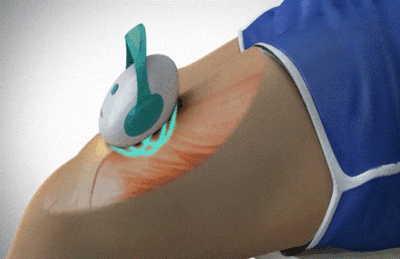Regular visits to a dentist and taking good care of your teeth are two main pillars of preventing more severe oral issues down the road, like cavities, decay, or gum disease. Good dental hygiene is essential for maintaining a picture-perfect smile. After all, a beautiful smile is more than just straight, sparkling white teeth. And poor dental hygiene has more severe consequences than an unattractive smile, as it can have far-reaching implications on your physical health.
How Does Poor Dental Hygiene Affect Your Physical Health?
The human mouth is brimming with bacteria, which, although harmless, can wreak havoc on the body without proper dental care. After all, the mouth is the gateway to all your internal systems, from the respiratory to the digestive system.
Bacterial infections in your mouth can trigger a chain reaction of chemicals that can cause infections, inflammations, and diseases in other body parts. Hence, oral discomfort isn’t something to take lightly.
How To Choose The Right Dentist?
Simply brushing and flossing won’t cut it if you want to maintain a healthy smile. Professional oral care is key for preventing many mouth ailments and identifying problems early on. However, like any other profession, not all dentists are proficient. Even in states like Wisconsin and Minnesota, with the best dental health among citizens, there are bound to be dentists within the state who can’t deliver the care they promised.
As oral health is an investment in your overall health, it’s only fitting to do your due diligence while searching for the right dentist. So, for example, if you need a dentist in St. Louis Park, MN, you need to look around the area for a good dentist that meets all your criteria. And if you don’t have criteria, don’t fret, as we have outlined everything you should consider before picking a dentist to ensure you’re in trusted hands. Keep scrolling to learn how to choose the best dentist available.
Four Things To Consider When Choosing The Right Dentist:
1. Location:
The location is one of the first things to consider when choosing a dentist. After all, the location of the dental clinic directly affects your ability to access dental care. Traveling an hour or two to the closest city just to get to your dentist isn’t worth it if you consider your busy schedule or dental emergencies that require immediate attention. After all, if a dentist isn’t located near your home or office, it may be more difficult for you to make appointments or get to the clinic on time.
Moreover, a clinic in a remote or less affluent part of town area doesn’t equate to providing worse service. Plus, the clinic’s location is also a deciding factor for the cost of dental care. Dentists in large cities or those serving areas with a high cost of living often set their prices higher than their counterparts in smaller towns or regions with a lower cost of living.
2. Experience:
The experience of the dentist indicates their level of skill and expertise. Dentists with more years of experience may have seen and dealt with more varied cases, allowing them to amass a deeper well of knowledge and expertise.
Moreover, expertise in a dentist’s specialty area might be just as necessary as their overall experience in the field. After all, it’s crucial to choose a dentist who specializes in the treatment you require, so if you have gum disease or need dental implants, for instance, you’ll want to find someone with plenty of expertise with such procedures.
When looking for a dentist, choosing one with plenty of expertise is crucial; this will offer you peace of mind that they’ll provide you with the treatment you need. Find a dentist that has been in practice for many years with a good reputation in the industry.
3. Availability:
Another critical factor is the dentist’s availability, affecting your ability to access dental care when you need it the most. Finding out that your dentist is fully booked for the next couple of weeks when you need to book an appointment can be frustrating. Plus, this can also become a significant concern if you have a dental issue that needs urgent care. So, choosing a dentist that is easily available when you reach out is best.
Apart from general availability, a dentist who makes time for their patients outside of regular hours is also worth considering. After all, busy patients will appreciate a dentist available at times that work best for them. Some dentists also offer appointments over the weekend. Finding a dentist willing to work with your hectic schedule and see you when you need them is especially crucial if you have little wiggle room in your day.
4. Reviews:
Checking out online reviews and testimonials of other patients’ experiences with a dentist can help you gain insights about what to expect during your visit. Plus, it also enables you to make an informed decision regarding your final choice.
Highly satisfied patient testimonials and reviews attest to a dentist’s competence, expertise, and excellent quality of care they provide. On the flip side, if patients complain about the quality of treatment, it indicates that the practitioner offers mediocre service or is dishonest about their abilities. However, keep in mind that reviews are subjective, and every patient is bound to have a different experience. So, it’s essential to read as many reviews as possible to gain a well-rounded insight into the patient experience at the clinic.
If you can’t find what you’re looking for in reviews, it may help to get suggestions from people you know and your primary care physician. They may be able to provide you with information on dentists in the area based on their personal experience, which will help you select the best dentist for your needs.
Bottom Line:
Choosing a dentist isn’t a decision you should make on a whim without proper research. After all, regular visits to a qualified practitioner can help you maintain the beauty and health of your smile and prevent health problems down the line. The most important thing is to find a dentist you feel comfortable with and trust to provide the care you need. Consider the above-discussed factors when deciding to ensure you get high-quality care that delivers the results you’re looking for.










